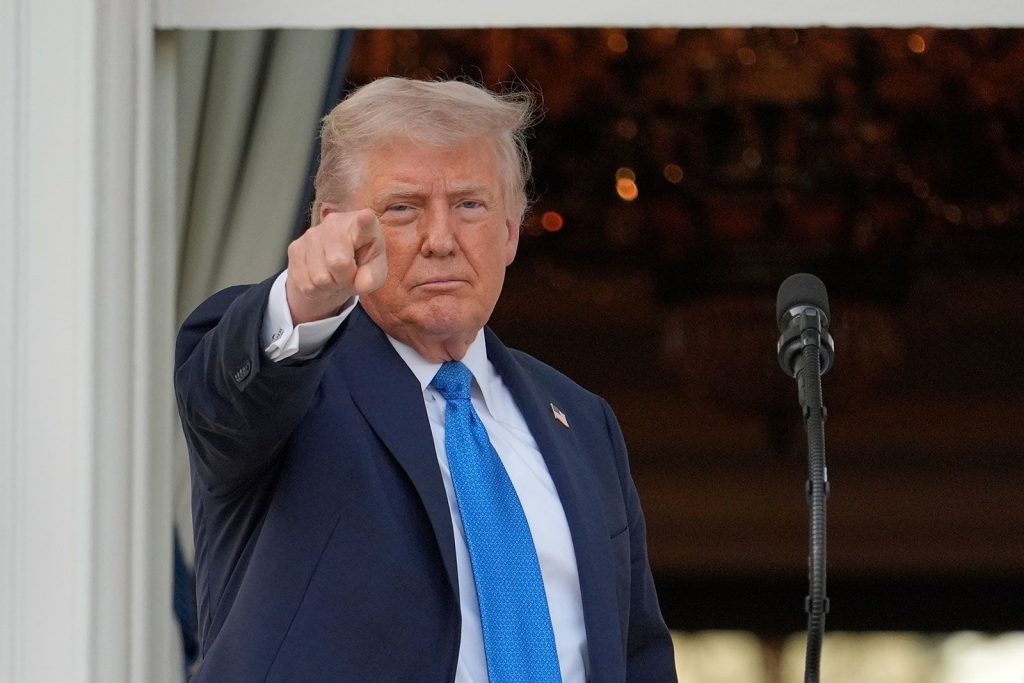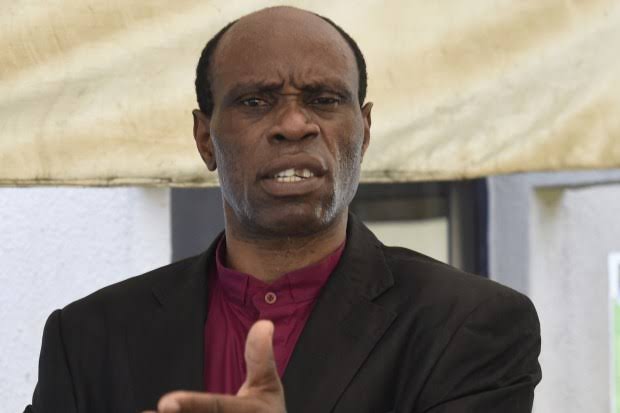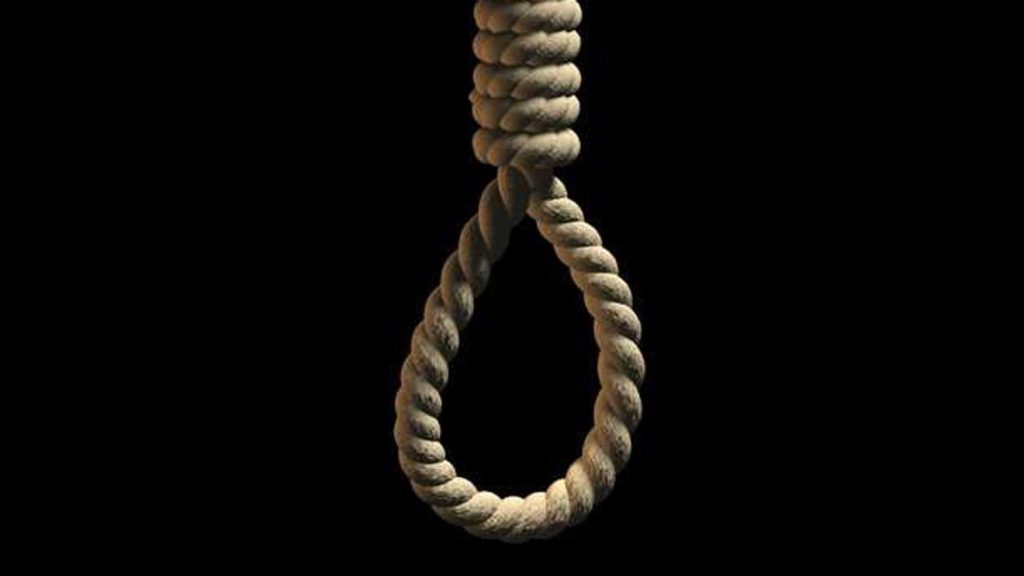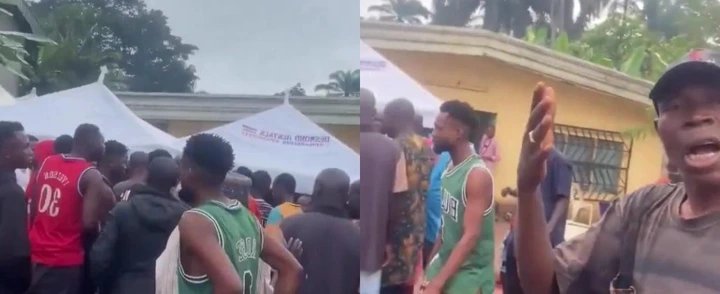News
Europe divided over Trump’s call for Ukraine to make peace with Russia

Europe’s coordinated strategy to push the U.S. toward imposing sanctions on Moscow, may have been endagered following U.S. President Donald Trump’s social media statement on Monday, May 12, 2025.
In the statement, Trump urged Ukraine to immediately enter peace talks with Russia has significantly disrupted, and possibly endangered,
European diplomats expressed frustration, noting that the intent had been to penalize Russia for rejecting Trump’s earlier suggestion of a 30-day ceasefire.
Trump’s unexpected message altered the diplomatic landscape just as Europe was preparing to increase pressure on the Kremlin.
Ukrainian President Volodymyr Zelenskyy, reportedly concerned about alienating Trump, agreed to attend proposed peace talks in Istanbul this Thursday.
According to diplomats, Russian President Vladimir Putin extended this invitation partly to avoid provoking Trump.
They suggest it was also to deflect the growing European effort urging Trump to enact harsher sanctions.
Despite this alignment in timing, Western officials clarified that there is no indication Trump coordinated with Putin in making his statement.
The move came shortly after a rare unified visit to Kyiv by the leaders of Britain, France, Germany, and Poland, Keir Starmer, Emmanuel Macron, Friedrich Merz, and Donald Tusk.
Their mission was to reinforce the call for a 30-day ceasefire beginning Monday and to pressure Trump into acknowledging that Putin was stalling, thus leaving the U.S. no choice but to enforce sweeping economic sanctions on Russia.
In the U.S., Republican Senator Lindsey Graham had already prepared a sanctions package that enjoys broad bipartisan support.
Concurrently, foreign ministers were in the Ukrainian city of Lviv on Friday, advocating additional pressure on Moscow.
They also discussed efforts to establish a special tribunal to prosecute Russian officials for the crime of aggression.
In line with this, the UK had announced sanctions targeting Russia’s shadow fleet.
However, following Trump’s public remarks, the UK has decided to delay further sanctions that were slated for Monday, while the EU remains on track to introduce its next sanctions package later this month.
On Monday, a German government spokesperson confirmed that if a ceasefire did not materialize by the end of the day, the EU would begin formal work on implementing new sanctions.
The decisive factor remains whether the U.S. imposes its own sanctions.
The economic blow and the political signal it would send, namely, Trump acknowledging Putin as the central barrier to peace, could be a gamechanger.
On Sunday, Trump posted on his Truth Social platform, blaming both Russia and Ukraine for failing to accept his ceasefire plan.
He urged Ukraine to enter talks immediately, stating that at least this would help determine the viability of a peace agreement.
He added that if no deal were possible, U.S. and European leaders would know how to proceed. Trump expressed doubt that Ukraine was seriously considering a deal with Putin.
European leaders gathered in London on Monday and are now watching closely to see whether Putin will attend the Istanbul talks himself,
especially significant since he does not recognize Zelenskyy as a legitimate leader.
In the last round of peace talks hosted by Turkey in 2022, Russian Foreign Minister Sergei Lavrov led Moscow’s delegation.
Should Putin personally attend, it would suggest he feels mounting pressure, potentially from Trump himself.
Kremlin spokesperson Dmitry Peskov declined to confirm whether Putin would participate, emphasizing instead that Russia was sincerely exploring ways to achieve a lasting peace.
He criticized what he described as unacceptable EU “ultimatums” and warned against using such language with Russia.
A major European demand remains that Putin end his evasions and agree to the 30-day ceasefire.
U.S. Secretary of State Marco Rubio will also be in Turkey on Thursday for an informal NATO summit focused on defense spending, though European officials plan to highlight Russia’s proposed peace terms, which they believe would lead to Ukraine’s dismemberment.
Some European representatives are expected to be in Istanbul to support Ukraine’s negotiating team, which has had little time to prepare for what could be a decisive diplomatic encounter.
Should the talks falter or Putin delay the ceasefire, Europe hopes to renew pressure on Trump to acknowledge that Putin is not seeking a fair peace, but Ukrainian capitulation.
Despite Trump’s disruptive role, European ministers in London attempted to downplay his influence publicly, reiterating that no real negotiations can occur without a full ceasefire.
Germany’s new foreign minister Johann Wadephul reaffirmed that Ukraine is ready for a truce, and now the onus is on Russia to follow suit.
Italy’s foreign minister, Antonio Tajani, accused Moscow of using delay tactics to possibly seize more territory.
Kaja Kallas, head of EU foreign policy, stressed that a ceasefire must precede any peace talks and that Europe must maintain pressure on Russia for playing diplomatic games.
Zelenskyy’s strategy since a contentious Oval Office confrontation with Trump and Vice President JD Vance has been to align with Trump’s public demands, fearing a withdrawal of U.S. support, which has not yet occurred.
Meanwhile, Russian Foreign Ministry spokesperson Maria Zakharova accused Ukraine of misinterpreting Putin’s statement.
She clarified that, from Russia’s standpoint, negotiations should begin with discussing the root causes of the war, before any ceasefire can be addressed.
Russia’s conditions include barring Ukraine from NATO membership, acknowledging Moscow’s annexation of four southeastern regions, and ending Western military support to Kyiv.
News
Trump Orders Review of 55 Million US Visa Holders in Mega Crackdown
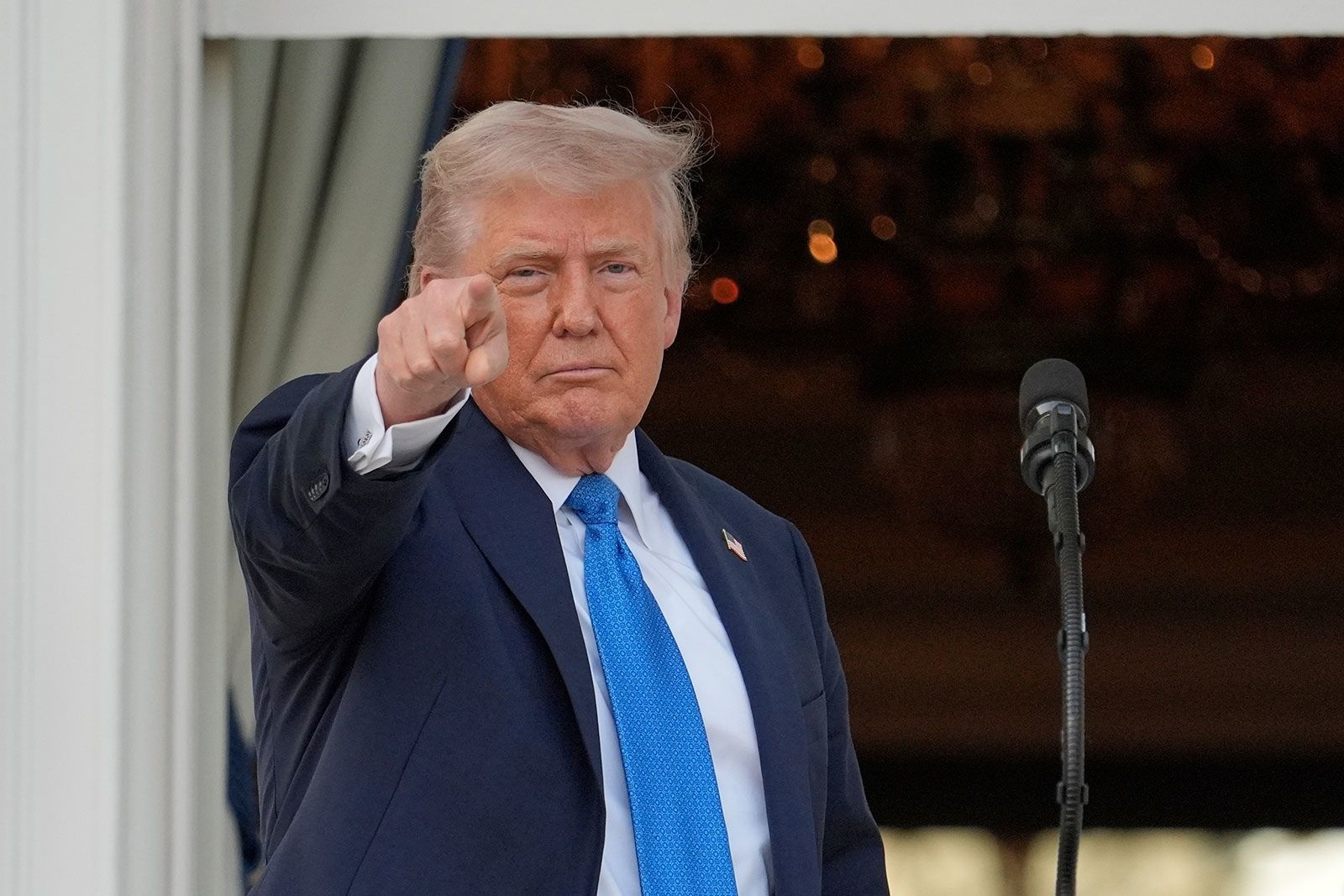
The Trump administration has announced a sweeping review of more than 55 million foreigners holding US visas, aiming to identify potential violations that could trigger visa revocation or deportation.
In a statement to The Associated Press, the State Department confirmed that all visa holders are now subject to “continuous vetting.”
Officials will examine any indicators of ineligibility, including overstaying authorised periods, criminal activity, threats to public safety, engagement in terrorism, or support for terrorist organisations.
If authorities find evidence of such violations, they will revoke the visa, and individuals already in the US could face immediate deportation.
Officials stressed that the review targets both individuals residing in the United States and those holding multiple-entry visas abroad.
Since assuming office, President Donald Trump has prioritized strict immigration enforcement, targeting not only undocumented migrants but also holders of student and visitor exchange visas.
The current vetting process extends far beyond prior reviews, potentially affecting individuals who initially received approval to stay in the US.
According to the Department of Homeland Security, last year the US had 12.8 million green-card holders and 3.6 million people on temporary visas.
Immigration policy expert Julia Gelatt of the Migration Policy Institute noted that the 55 million figure likely includes individuals living abroad with tourist or business visas. She questioned whether allocating resources to review people unlikely to return justifies the scale of the initiative.
Alongside the review, Secretary of State Marco Rubio announced on X that the US will immediately halt work visas for commercial truck drivers, citing safety risks and threats to American jobs.
“The increasing number of foreign drivers operating large tractor-trailer trucks on US roads is endangering American lives and undercutting the livelihoods of American truckers,” Rubio wrote.
The administration recently strengthened English proficiency requirements for foreign truckers following incidents where language barriers contributed to accidents. State Department officials confirmed they are pausing the processing of new work visas to reassess screening and vetting protocols.
“Ensuring that every driver meets the highest standards protects American workers and maintains a secure, resilient supply chain,” the department added.
Experts warn the broader implications of the review could ripple across the US economy. Edward Alden, senior fellow at the Council on Foreign Relations, explained that the administration’s policies aim to discourage companies, universities, and hospitals from employing foreign workers.
“The economic consequences will extend far beyond individual visas,” Alden said, emphasizing that employers risk compliance issues if they continue hiring foreign staff.
The review represents the most comprehensive enforcement action in recent US history and signals that the administration will aggressively monitor both legal and temporary visa holders to maintain national security and prioritize domestic employment.
News
2027: ADC Coalition Deceiving Nigerians – Baba-Ahmed
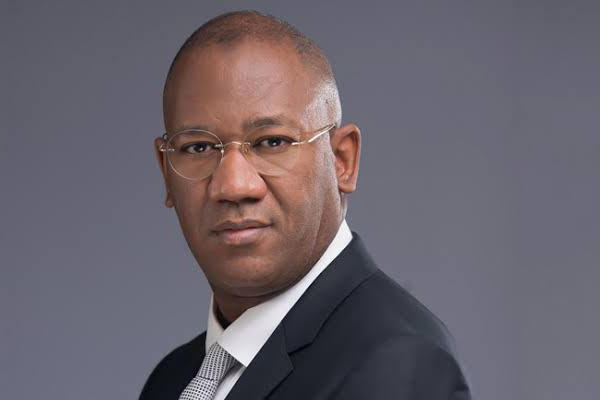
The 2023 Labour Party (LP) vice-presidential candidate, Datti Baba-Ahmed, has warned Nigerians that the opposition coalition under the African Democratic Congress (ADC) is giving false hope about rescuing the country from underdevelopment.
“They are deceiving us,” Baba-Ahmed said during an interview on Channels Television’s Politics Today on Friday.
Baba-Ahmed, who ran alongside Peter Obi in the 2023 presidential election won by Bola Tinubu of the All Progressives Congress (APC) expressed his willingness to be Obi’s running mate in the 2027 presidential election.
Although Obi has shown interest in the 2027 race and is aligning with ADC coalition figures such as David Mark, Atiku Abubakar, Nasir el-Rufai, Rotimi Amaechi, and Rauf Aregbesola, Baba-Ahmed stressed that he wants Obi to remain in the Labour Party and contest as its presidential candidate.
“I’m in the Labour Party. I’m a Peter Obi man. I still want Peter Obi to come back to the Labour Party and contest the 2027 election,” Baba-Ahmed stated.
When asked about his plans for the 2027 race, Baba-Ahmed confirmed his readiness to serve as a running mate for like-minded leaders committed to restoring Nigeria.
“If Nigeria is still around and there is an electoral system to follow, my love for Nigeria is undying.
I would appropriately associate with groups and individuals aligned with restoring the nation,” he said.
Baba-Ahmed also revealed two potential leaders he would consider deputising, with Peter Obi being his primary choice. “The first one has not said anything.
The second one is Peter Obi. I’m always with Peter Obi until he decides not to,” he added.
News
Tinubu Secures Fresh $238m Loan from Japan

Nigeria has secured a $238 million loan from the Japan International Cooperation Agency (JICA) to support the expansion and modernization of the national power grid.
The deal, confirmed during engagements at the ninth Tokyo International Conference on African Development (TICAD9) in Yokohama, Japan, reflects a strategic shift towards implementation-driven energy development.
President Bola Tinubu highlighted that Nigeria’s participation at TICAD9 focused on concrete, outcome-oriented partnerships rather than ceremonial diplomacy.
“We are moving from planning to implementation, from agreements to delivery, and from promises to measurable results,” he said.
Details of the JICA Loan Project
The $238 million loan, supported by a Federal Executive Council counterpart funding of ₦19,083,192,805.30, will finance significant upgrades to Nigeria’s transmission infrastructure.
Key components of the project include:
Construction of 102.95 km of new 330kV double-circuit lines
Construction of 104.59 km of 132kV double-circuit lines
Development of four 330/132/33kV substations and two 132/33kV substations
Multiple line bay extensions to improve efficiency and reduce system losses
According to Minister of Power, Chief Adebayo Adelabu, the partnership with Japanese companies such as Toshiba, Hitachi, and Japan’s Transmission & Distribution Corporation is essential for unlocking Nigeria’s energy potential.
“Our focus is on transmission infrastructure, operational efficiency, and strategies to reduce system losses.
This $238 million loan from JICA provides the backbone for that transformation,” Adelabu explained.
Adelabu acknowledged Japan’s consistent support for Nigeria’s power sector, highlighting contributions in infrastructure, technical studies, training, and financing.
He emphasized that JICA’s backing is critical to expanding access to reliable, affordable, and sustainable electricity across the country.
The project aims to strengthen Nigeria’s power transmission network, improve system reliability, and enhance overall efficiency, ultimately supporting industrial growth and meeting rising electricity demand nationwide.
News
‘Gate of Hell’ Will Open on Gaza’– Israeli Defence Issues Finally Warning to Hamas

Israeli Defence Minister Israel Katz has issued a fierce warning to Hamas, declaring that Gaza City will face complete destruction if the militant group refuses to accept Israel’s conditions for ending the war.
Katz, in a statement shared on social media on Friday, August 22, 2025, used sharp words to describe Israel’s next steps.
He said the “gates of hell” would open on Hamas if it failed to disarm and release all hostages.
“Soon, the gates of hell will open upon the heads of Hamas’s murderers and rapists in Gaza until they agree to Israel’s conditions,” Katz wrote.
He added that if Hamas refused, Gaza City would suffer the same fate as Rafah and Beit Hanoun, two cities previously flattened by Israeli offensives.
His comments mark one of Israel’s strongest warnings since the escalation of the conflict.
The minister’s remarks came only hours after Prime Minister Benjamin Netanyahu announced that negotiations had been ordered to free the hostages held in Gaza.
Netanyahu explained in a video address that Israel’s military operation in Gaza City would not stop during talks. “Defeating Hamas and releasing our hostages go hand in hand,” he said.
The prime minister also confirmed the mobilisation of 60,000 reservists to join the offensive.
Meanwhile, mediators have been waiting for Israel’s response to a ceasefire plan that Hamas accepted earlier in the week.
The proposal suggests a phased release of hostages, but Israel insists that only a deal ensuring the release of all captives at once will be accepted.
Israel’s hardened stance has sparked growing concern worldwide.
International leaders have cautioned that an expanded assault on Gaza City could worsen the humanitarian disaster already unfolding in the region.
Gaza’s health ministry says more than 62,000 Palestinians, most of them civilians, have been killed since Israel’s military campaign began.
The United Nations considers these figures credible.
The war was triggered by Hamas’s October 2023 attack, which left 1,219 people dead in Israel, mostly civilians.
Since then, the conflict has intensified, with both sides showing little sign of compromise.
With Katz’s threat to turn Gaza City into rubble if demands are not met, the conflict appears to be entering an even deadlier stage.
The international community continues to press for a ceasefire, but Israel’s leadership insists that victory over Hamas and the release of all hostages remain its top priorities.
Health
NAFDAC Raises Alarm as Fake Cowbell Milk Floods Nigerian Markets
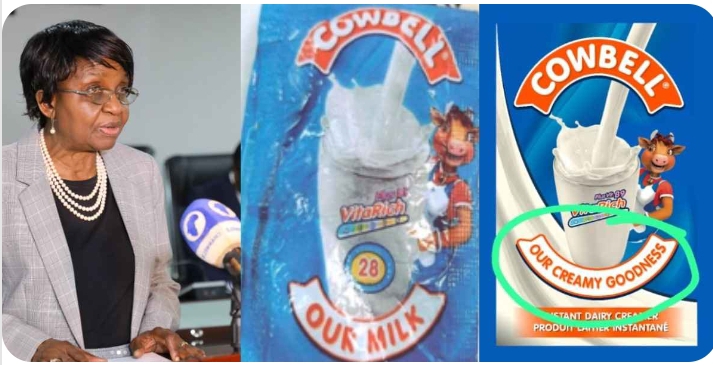
The National Agency for Food and Drug Administration and Control (NAFDAC) has raised alarm over the circulation of fake Cowbell “Our Milk” 12g sachets in Nigeria.
In a statement issued on Friday, August 22, 2025, the agency explained that the counterfeit milk is packaged to look like the discontinued Cowbell “Our Milk,” but it is unauthorised and unsafe for consumption.
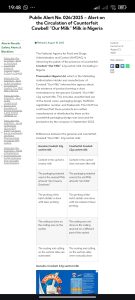

NAFDAC clarified that Promasidor Nigeria Ltd, the authentic manufacturer, stopped producing Cowbell “Our Milk” in September 2023.
The product was replaced with Cowbell “Our Creamy Goodness.” Despite this, fake versions of the old product have found their way into Nigerian markets.

Picture of Fake cowbell milk.
The counterfeit sachets bear the brand name, NAFDAC registration number, and familiar packaging design, making them difficult for unsuspecting buyers to identify as fake.
Health Dangers of Fake Cowbell Milk
NAFDAC warned that the consumption of these counterfeit products poses serious health risks.
Fake milk could contain toxic chemicals, harmful additives, or diluted ingredients that endanger human health.
Infants, children, pregnant women, and the elderly are the most vulnerable. Possible dangers include:
- Foodborne illnesses
- Allergic reactions
- Organ damage
- Long-term health complications
- In extreme cases, death
Counterfeit Product Details
- Product Name: Cowbell “Our Milk” 12g sachet
- Purported Manufacturer: Promasidor Nigeria Ltd
- Production Date: 04/2025
- Expiry Date: 12/2028

Picture of original cowbell milk.
NAFDAC Issues Strong Warning
The agency urged Nigerians to remain vigilant and avoid purchasing the counterfeit milk.
Healthcare professionals, distributors, and consumers have been advised to report suspicious sales of substandard or fake products immediately.
Reports can be made through:
The nearest NAFDAC office
Toll-free line: 0800-162-3322
Email: sf.alert@nafdac.gov.ng
NAFDAC also called on traders and retailers to stop selling the fake sachets.
The agency assured the public that strict enforcement measures are being taken to remove the counterfeit products from circulation.
This is not the first time Nigerians have faced risks from fake food and beverages.
Experts warn that counterfeit consumables are becoming more sophisticated, often making them difficult to spot.
Consumers are advised to always check product details, expiry dates, and packaging changes announced by manufacturers.
By highlighting the dangers and raising awareness, NAFDAC says it hopes to protect Nigerians from avoidable health crises linked to fake milk products
-
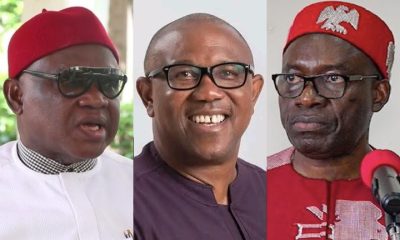
 Featured4 days ago
Featured4 days agoYour Attacks on Peter Obi Are Petty, Stop It! Chekwas Rebukes Soludo
-
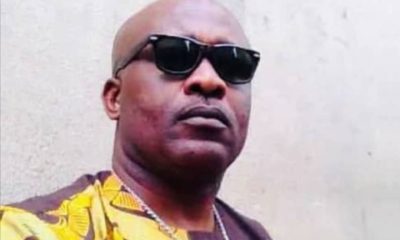
 News4 days ago
News4 days agoTension in Anambra community as senior police officer shoots kinsman dead
Colleagues, others try cover-up; victim's family fights back
-
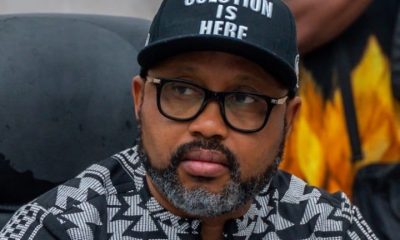
 News7 days ago
News7 days agoAnambra South Bye-Election: APC Chief Rescues Deputy Gov Caught In Vote Buying From Angry Youths
By Chuks Collins, Awka
-

 News5 days ago
News5 days agoNigerian visa applicants must provide 5-yr social media history — US embassy
-

 Celebrity/Entertainment22 hours ago
Celebrity/Entertainment22 hours agoHow Nigerian TikToker Geh Geh Made ₦45 Million in One Night
-
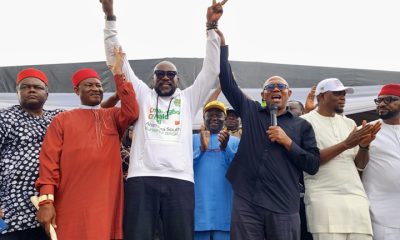
 Analysis6 days ago
Analysis6 days agoSystemic Sabotage: How APC, INEC Colluded To Undermine Amamgbo’s Senatorial Bid
By Arthur Ezechukwu
-

 News3 days ago
News3 days agoTerrorist Organisation: APC, PDP Members in US, UK, France Risk Deportation
-

 Celebrity/Entertainment5 days ago
Celebrity/Entertainment5 days agoWhy single mothers can’t raise boys into proper men — Jim Iyke
-

 News7 days ago
News7 days agoBREAKING: Troops arrest Nigeria’s most wanted terror kingpin
-

 News2 days ago
News2 days agoVandal electrocuted while vandalizing Aba power infrastructure



